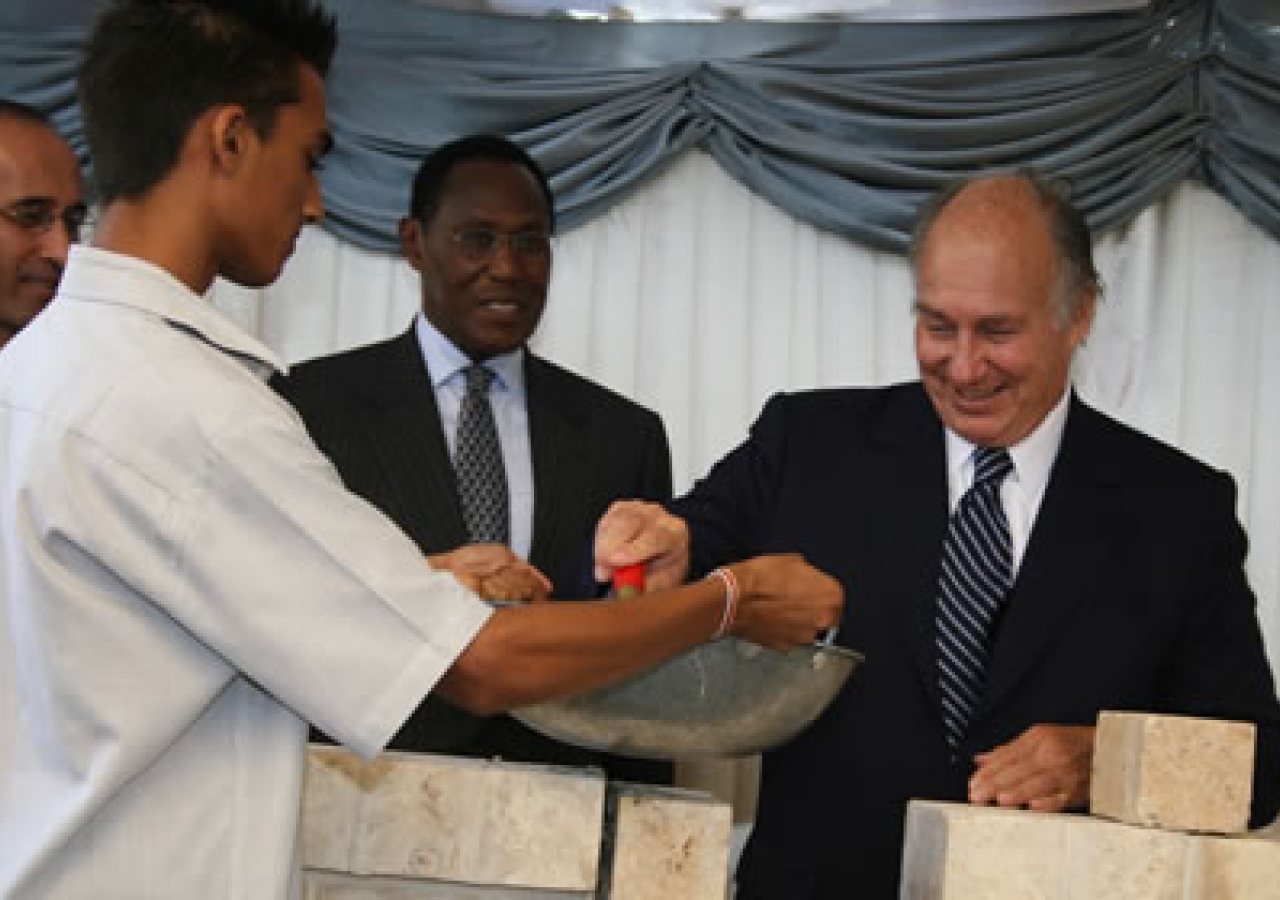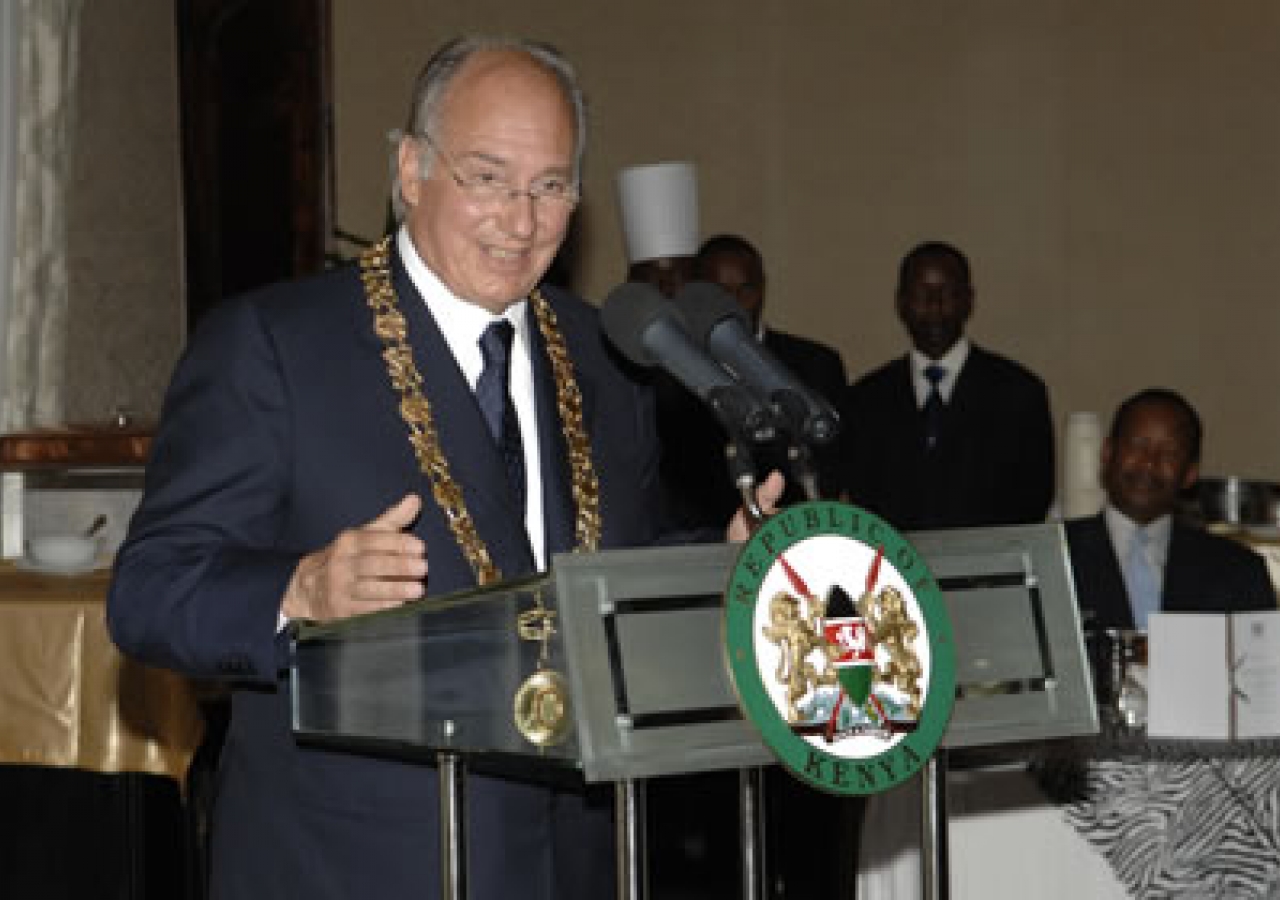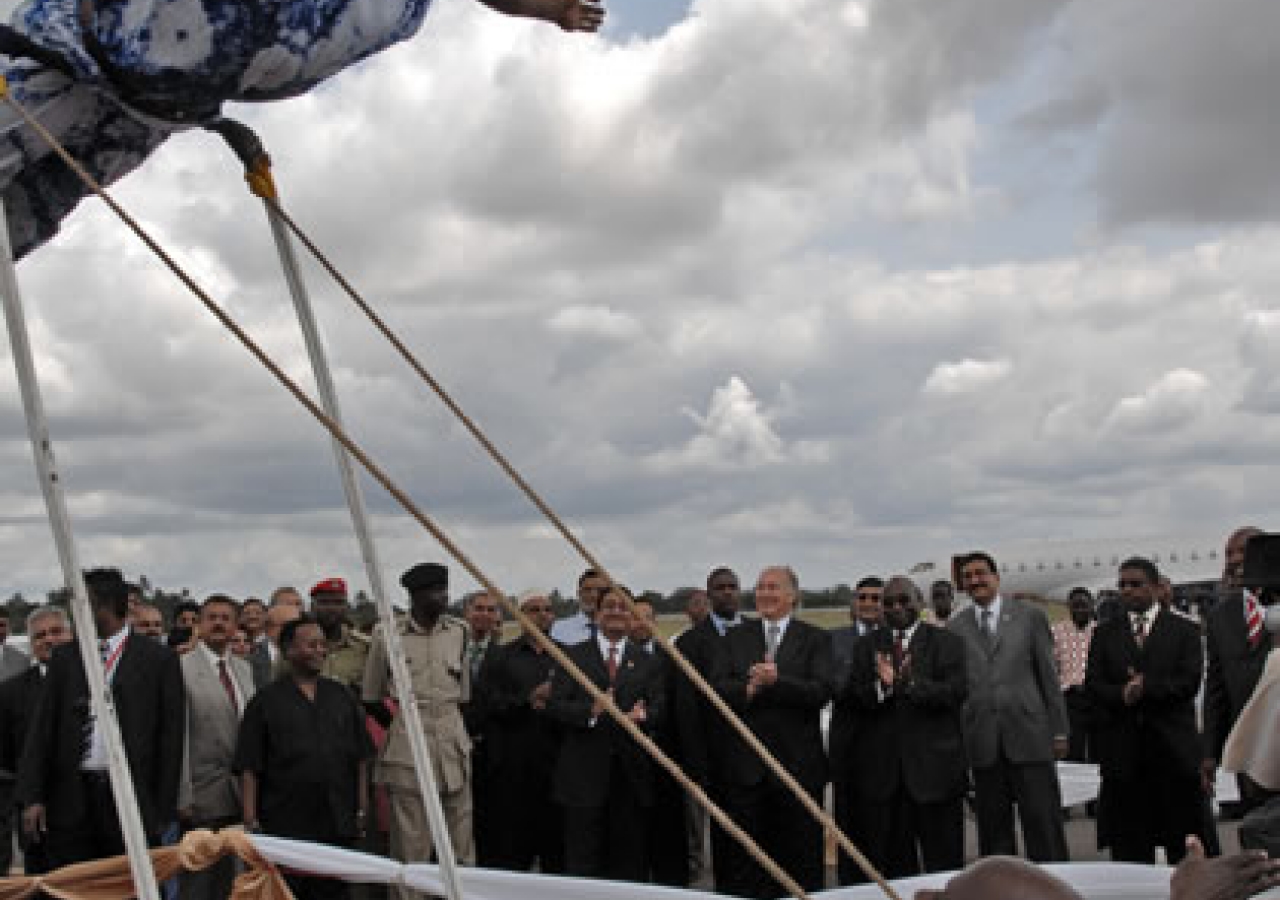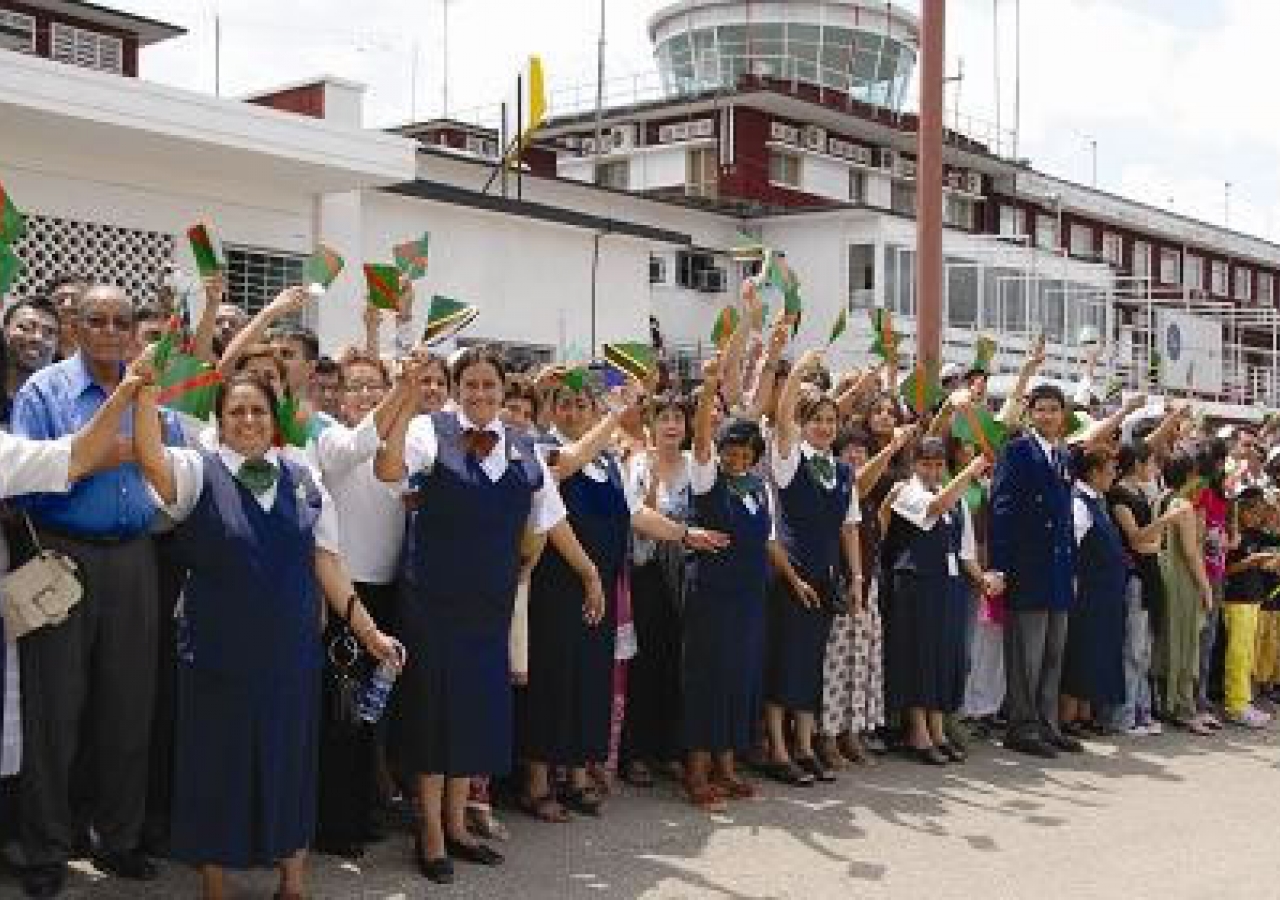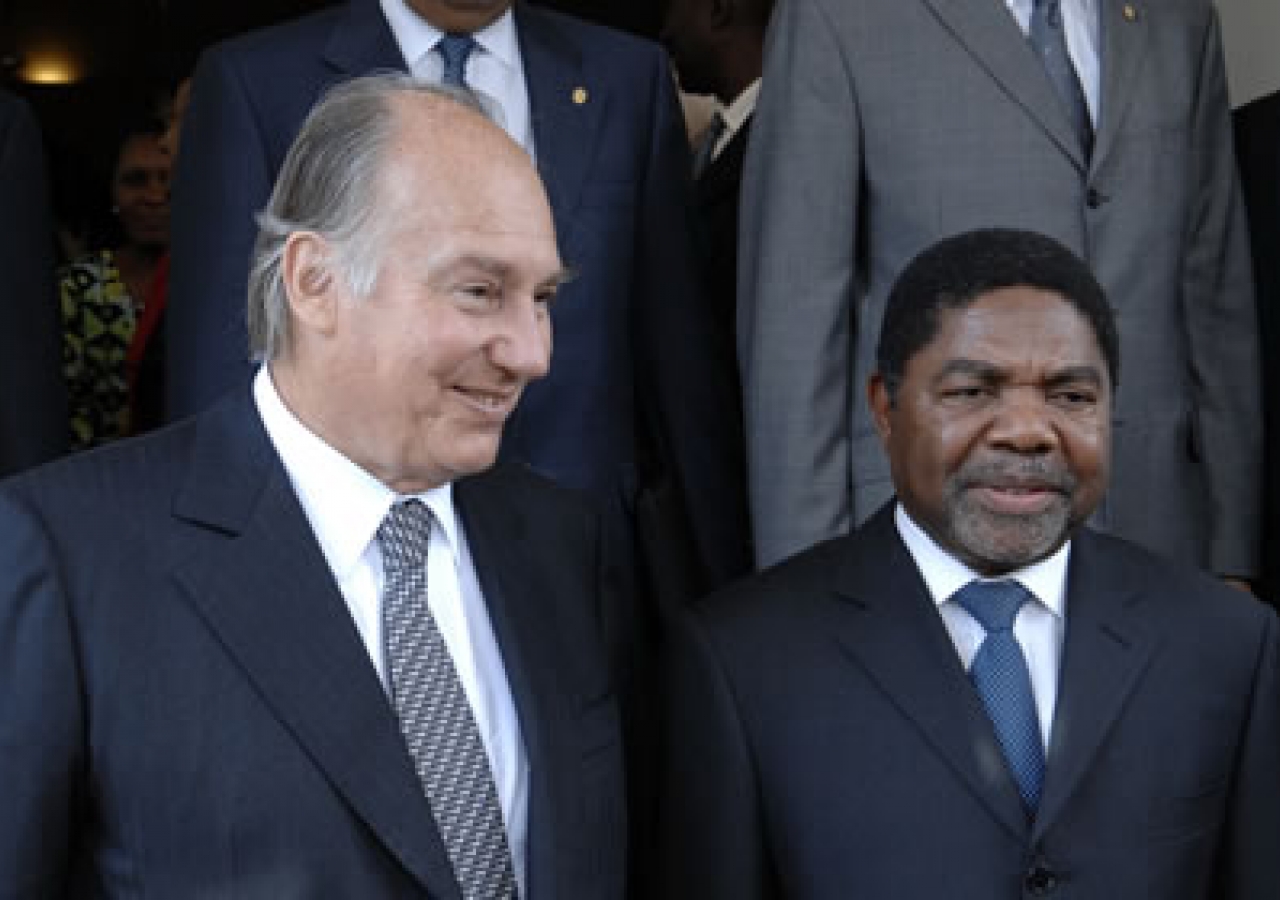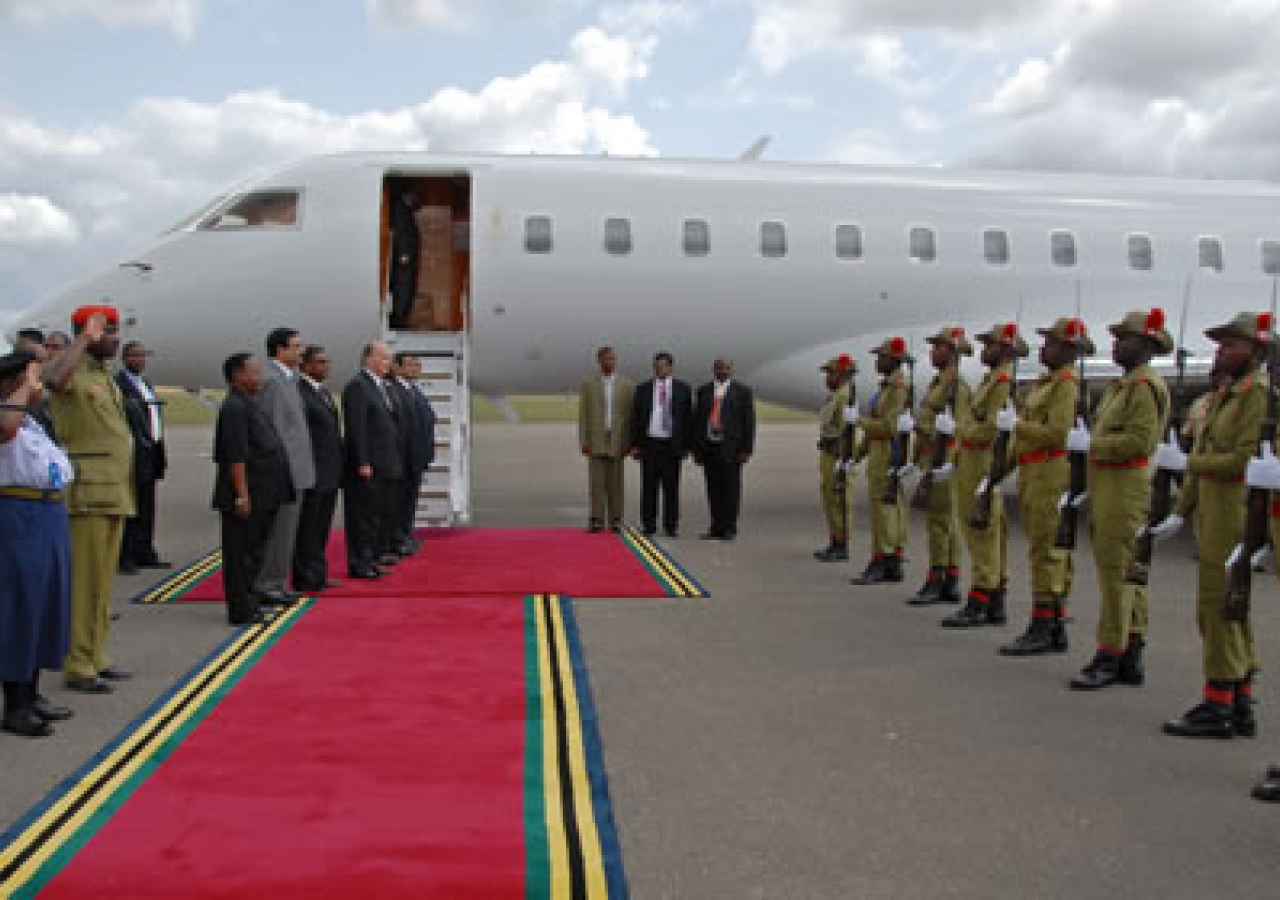Positioning Africa in the 21st century
Over the years, the state of Africa has been of concern to many. Grappling with challenges such as poverty, disease, hunger and other social problems, Africa has remained one of the least developed continents in the world. But a record-breaking growth rate in many emerging countries, increasing regionalisation, and massive foreign investment have helped to fuel a new era of “Afro-optimism” - the idea that Africa can and is making real progress. This optimism is informed by the fact that many countries on the continent are rich in natural resources, have the political will to turn the situation around for the better, and have already committed substantial efforts to creating the right environment for sustainable development, economic reform, peace and stability, creating a huge potential to move the continent as a whole out of its condition of underdevelopment and poverty.
Mawlana Hazar Imam's Golden Jubilee visit to East Africa underscored this optimism and that the continent was indeed moving in the right direction, with the announcement of new initiatives in excess of $1 billion in regional investments under the Aga Khan Development Network (AKDN) in the areas of health care, education and infrastructure; launches of new Aga Khan University initiatives in Nairobi and Arusha, developments for the Aga Khan Academies in Mombasa and Kampala, and commencement of the Bujagali Hydropower Project in Jinja.
Members of the global Jamat congregated in East Africa for the commencement of Hazar Imam's global visits. From as distant as Panama or Australia, Jamati members from over 40 countries travelled to the region to participate in this historic event, which for many East Africans around the world, was a nostalgic homecoming.
The schedule for the 12-day visit, which included community, institutional and state functions in Kenya, Tanzania, Zanzibar and Uganda, was hectic and fast paced, but with the support of innumerable volunteers, the visit, its organisation and the care of thousands of visitors was a resounding success.
The atmosphere was euphoric. Across many cities, billboards heralded the Imam's arrival; newspapers carried front page headlines, and people from different walks of life paid tribute to Mawlana Hazar Imam, saluting his efforts towards the progress of Africa. At airports, volunteers greeted arriving visitors with flowers, mithai and essential items to make their stay more enjoyable. From volunteering in Darbar décor to hospitality, catering or security, members of the global Jamat joined hands in the spirit of brotherhood to make the visits an unforgettable collective effort and experience. International musicians entertained the Jamats; dandia raas went on into many a night as murids from all over the world rejoiced and celebrated as one.
At the onset of his visit, Mawlana Hazar Imam was bestowed with Kenya's highest medal of honour, The Chief of the Order of the Golden Heart of Kenya (C.G.H), by His Excellency President Mwai Kibaki of Kenya. Hon. Raphael Tuju, Kenya's Minister for Foreign Affairs, in the citation to the Award noted, “Kenya recognised His Highness the Aga Khan's personal commitment and passion to serve other human beings; his generosity, thoughtful stewardship, his benevolent spiritual direction and his many endeavours to alleviate human suffering. His network has made a difference to the country and people of Kenya.” The Order of the Golden Heart of Kenya was created and ordained by the first President of Kenya, Mzee Jomo Kenyatta, on 21 April 1966. There are three classes of the Order; the Chief, Elder and Moran of the Order of the Golden Heart of Kenya. The 1st Class (C.G.H.) comprises a full length collar chain, incorporating 24 emblems/links.
Speaking at the award ceremony at the banquet hosted in his honour by the Government of Kenya, Mawlana Hazar Imam noted that over the past half century he had seen the developing world oscillate between hope and disappointment. “The disappointments often resulted from the false hope that one theory or one dogma, one person or one party had all the answers to the riddles of development. Genuine hope, on the other hand,” he noted, “has usually been rooted in a tough sense of realism, a recognition that no one has all the answers, that today's answers may not work forever, that good people do not all think alike, and that we must constantly learn from one another for an uncharted future.”
In advancing this spirit of partnership, Mawlana Hazar Imam inaugurated the Faculty of Health Sciences of the Aga Khan University – East Africa's first private medical school. The $250 million health sciences campus, to be established in Nairobi, will provide international standard education for doctors, nurses and allied health professionals and will comprise a Medical College, a School of Nursing and allied health programmes. Mawlana Hazar Imam said that the University would develop close partnerships with universities and centres of excellence around the world, and that he hoped investments such as these would encourage other private initiatives, while also encouraging educators from the public sector to welcome private institutions as complementary players rather than as competitive ones.
While in Kenya, Hazar Imam celebrated the 25th Anniversary of the Madrasa Programme, a programme that has grown to include 203 pre-schools, with nearly 800 teachers, reaching some 30,000 households and serving more than 54,000 children. He also laid the foundation stone for the construction of the new Residential Campus at the Aga Khan Academy in Mombasa, an expansion that will broaden the geographic reach of the institution as well as the range of experiences it offers its students. Mawlana Hazar Imam talked of his conviction that the key to the success of democratic societies in the years ahead would be through the cultivation of wise leadership and specialised expertise, and that the optimism for Africa's future was rooted in the inherent capacities of the younger generation and what they could accomplish if given the right opportunities. He added that he hoped the Academies would instil in their students, “a strong ethical orientation, a sense of personal discipline and civic obligation, and an appreciation for diversity and pluralism.”
While laying the foundation stone of the Aga Khan Academy in Kampala, Mawlana Hazar Imam extended his emphasis on the importance of educating future leaders and noted that economic growth could only be sustained if the human resources to drive that growth were developed adequately from now. Commenting on the location of the lakeside Academy, Mawlana Hazar Imam added that by providing a variety of environmental experiences for its students, it was envisaged that the network of global Academies would develop in their students a sense of “environmental pluralism” to accompany the appreciation for cultural pluralism.
Later, while in Tanzania, Mawlana Hazar Imam announced plans to build another Aga Khan University campus in Arusha that will include a new Faculty of Arts and Sciences and several graduate professional schools, and stressed that the decision to erect the $450 million complex in north-eastern Tanzania stemmed from his faith in the future of the East African Community. “We hope that the University will be a source of effective leadership for the East Africa of tomorrow,” he said.
Mawlana Hazar Imam referred to the rich heritage through Islamic history of the search for knowledge, and noted that many of the AKDN's long-term investments that were being made throughout the developing world were in education. These ranged from the pre-school efforts of the Madrasa programme, to primary and secondary schooling through the Academies programme, culminating in the tertiary programmes of the Aga Khan University and the University of Central Asia. He emphasised that when investments were made in education, they were in essence investments in people, and no investment could pay greater dividends.
Mawlana Hazar Imam also made a day-trip to Zanzibar, and recalled the long-standing relationship that existed with Zanzibar spanning over a century. He commented while at the State House that although there was already great collaboration with the Government in areas such as education and health care, he hoped that this would increase in the future. In particular, he cited Zanzibar as a “cultural jewel” and noted that there lay an exceptional opportunity to cultivate this, so that its rich history and people could be presented to the world in a way which would bring admiration and recognition to it.
During the final leg of the visit, Mawlana Hazar Imam also laid the foundation stone of the 250MW Bujagali Hydroelectric Power Project, the largest single private sector investment in East Africa, with an estimated project cost of over $770 million. The Imam was joined by Prince Amyn and Prince Rahim for the much anticipated commencement of the project, which is expected to cut the cost of power by more than half in Uganda initially, and further thereafter. With only 5% of the total population of Uganda - and only 1% of the rural population - having access to the grid supply of electric power, Hazar Imam noted that Bujagali was not only a desirable option but a fundamental necessity. He added that whereas continuing power shortfalls could lead to discouragement he hoped AKFED projects such as these would make a special contribution to an upward spiral of progress.
Over the course of his visit, Mawlana Hazar Imam cited several guiding principles if Africa was to unlock its true potential. The first was embracing the spirit of pluralism, and continuing to build a culture which sees diversity and differences as a source of potential strength, where pride in our own personal traditions was balanced by the desire to learn from people of different backgrounds and with different perspectives.
Another key to progress was a commitment to excellence. Mawlana Hazar Imam reiterated the ability to achieve normal world-class standards as a necessity in today's fast changing world, and noted that the notion that mediocrity was considered tolerable because it was “good enough for Africa” was an increasingly dangerous position.
Mawlana Hazar Imam's message for Africa was an upbeat and optimistic one, and he noted that while the Jamat and every generation would make its own choices, the goal of the Imam and the Imamat institutions was to try to create stable opportunities in as many parts of the world that the Jamat settled in or would like to settle in. He encouraged the Jamat not to assume that environments would remain frozen, and recollected the pessimism with which countries such as India and China were regarded with several decades ago, commenting that what had been accomplished there could likewise be translated as a model for Africa's success in the years to come.


